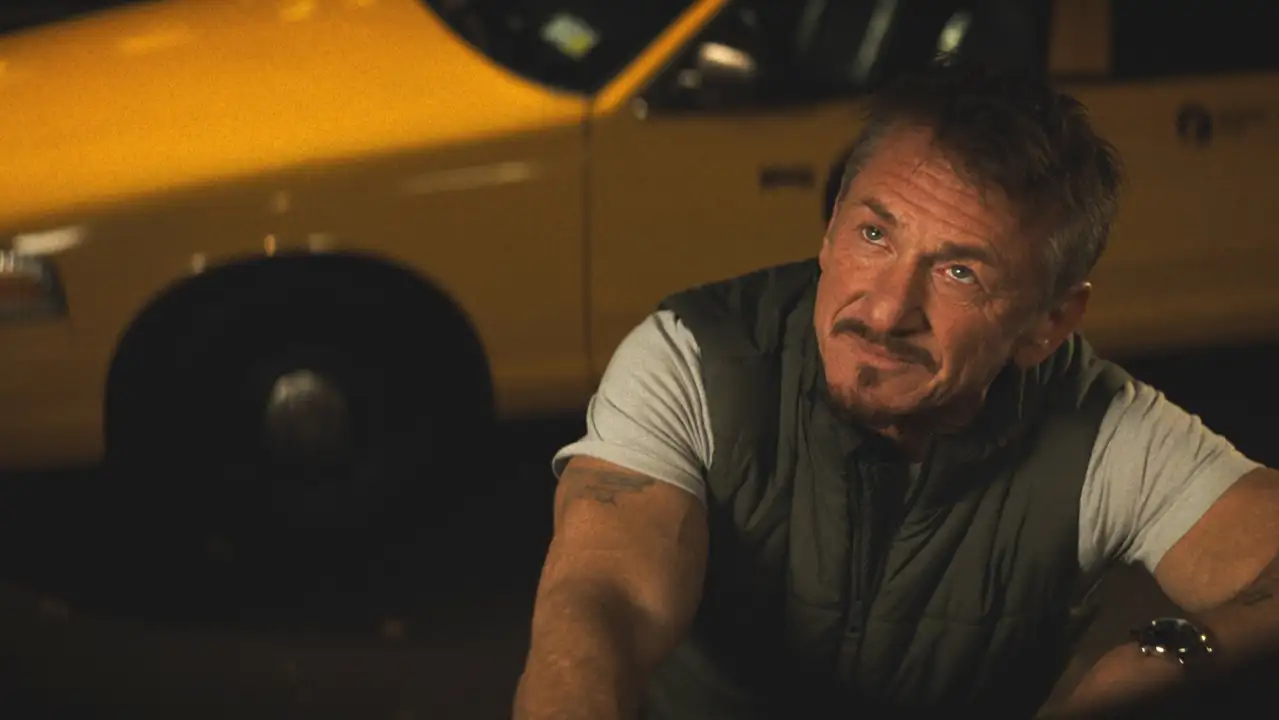Daddio review: Dakota Johnson and Sean Penn star in muddled, dull cab ride two-hander
Two people baring their hearts on a car ride can offer insight, but here it's mostly tedious
Film Reviews Daddio
There is no cab ride that feels longer than the one you take from the JFK airport to your home. No matter the time of day—and no matter how short the distance may be—New York City has a way of making that trek feel interminable. There’s always traffic. There’s always waiting. There’s always noise. And more often than not, there’s always a chatty cabbie accompanying if not outright adding to the city’s cacophony. It’s a testament to filmmaker Christy Hall that she’s found in such an experience enough inspiration to anchor her feature directorial debut, the intriguing if altogether unsatisfying Daddio.
When Girlie (yes, Hall never gives us her actual name) lands at JFK armed only with a carry-on and a phone she keeps avoiding, she’s savvy enough not to hail a rideshare car. Airport fares are still flat when you board a yellow cab. Once she’s in, she even knows exactly how to turn off the godawful TV that aims to numb your trip with needless info about current shows playing on Broadway. In another film, such details would help clue us in as to what kind of woman Dakota Johnson is playing. After all, with her platinum blond hair, her Doc Martens boots, and her prettily colorful nails, we immediately gather that this is a somewhat put-together young woman who may well be on the verge of… something. She can take care of herself, but there’s something at a remove here.
Except, in Daddio, such subtext is bluntly made into text. No sooner has Johnson’s aloof character boarded her taxi than her cabbie Clark (Sean Penn) calls out these very details. He knows people, you see. Decades of driving strangers have made him a keen observer of the world. To some, his observations might have crossed a line, but Girlie is in a kind of meditative mood and so she finds his overly familiar demeanor endearing. As the two strike up a conversation that becomes ever more intimate as the ride stretches out into the night, Daddio becomes a simple two-hander that stages conversations designed to resonate outside of this battered New York cab.
Battling evening traffic across town (we’re headed to Midtown in Manhattan and of course there’s bound to be an accident on the road), Girlie and Clark start sharing plenty, the strangeness of an encounter with a stranger allowing for the kind of naked honesty that’s often hard to stage with those that know us best. They even make a game out of it, upping the ante with every new revelation, with every new freshly laundered personal anecdote hoping to leave the other agog. Or in tears. Or in awe.
The two, it seems, cannot so easily be reduced to what they first appear to be: him, gruff and abrasive; her, wounded and distant. Their discussions around love and family, commitment and parenthood, desire and regret, teeter on the edge of didacticism, with Hall’s script hamfistedly asking us to just listen to two people from different worlds (imagine that!) connecting—truly connecting—and more importantly listening and seeing one another.
Girlie feels safe enough to share why she’s so shaken as she returns home from a short trip seeing family. And Clark is emboldened enough to not let her be the only one disclosing details about their life and provides, in turn, personal memories meant to reassure and caution her in equal measure. While there’s a whiff of a “men are from Mars, women are from Venus” vibe to the schematic structure of the piece, Hall is canny enough to throw enough curveballs to make it appear more authentic than it would on paper.
Many a play has been made with less. And said more in the process, perhaps. But Hall, who wrote this specifically for the big screen, stumbles in trying to keep this tête-à-tête dynamic enough not to feel like a drag. There are so many scenes where we go from a shot of Johnson in the back of the cab, smirking her way through a quippy retort, to a shot of Penn ribbing her from the driver’s seat, and then back again that any vibrancy of their discussions gets lost in their repetitive trappings. That is, of course, when Daddio doesn’t arbitrarily break up these dialogue-heavy exchanges with texts between Girlie and a mystery man whose flirtatious advances end up being just as tediously one-note as Daddio’s visual stylings.
Given its premise and set-up (a chat between two characters in a moving car presented all but in real time), Daddio has the whiff of a stylistic exercise—one which Johnson and Penn attack with requisite self-seriousness. The self-contained aspect of it (we only learn about these characters through what they tell one another; and how they tell said things to the other) is intriguing and there are moments when it’s quite touching, moving even, about the things we hide from each other and even from ourselves. There’s candor and insight here. But, much like Girlie and Clark, Daddio remains stuck despite the appearance of movement. Once it arrives at its destination, you may find yourself (as I did) exhausted from the journey, ready to leave them both on the curb where you first found them.